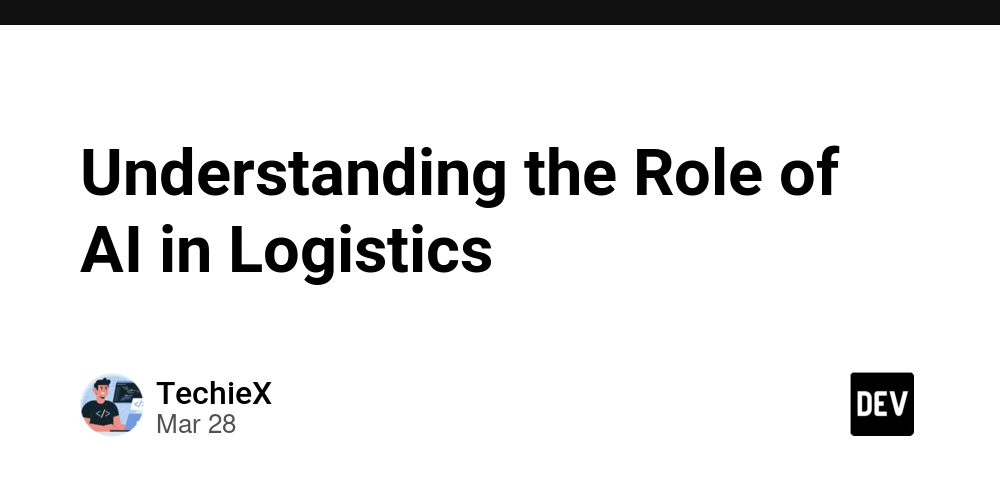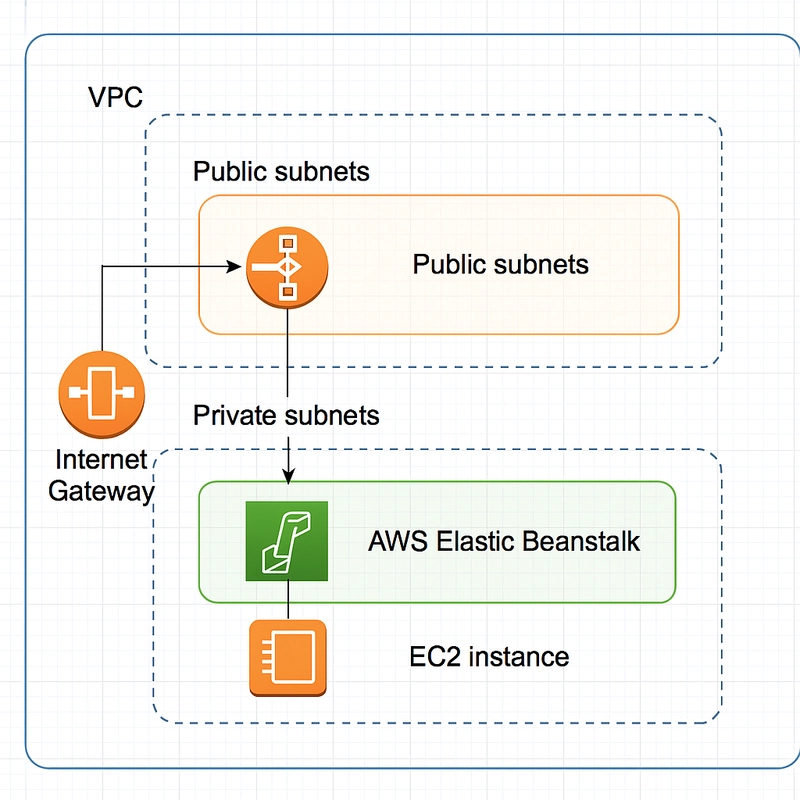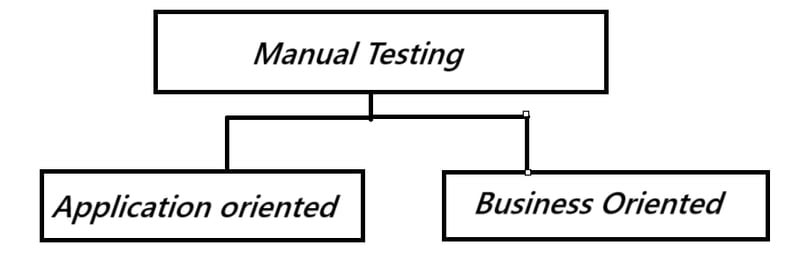Understanding the Role of AI in Logistics
Introduction Artificial Intelligence (AI) has become a transformative force across various industries, and logistics is no exception. The integration of AI in logistics is reshaping how goods are transported, warehouses are managed, and supply chains operate. Businesses that leverage AI-powered technologies gain a competitive edge by improving efficiency, reducing costs, and enhancing customer satisfaction. In this article, we will explore the role of AI in logistics, its key applications, benefits, and the future of AI-driven supply chain management. How AI is Revolutionizing Logistics AI in logistics involves the use of machine learning, predictive analytics, automation, and robotics to optimize operations. From route optimization and demand forecasting to automated warehouses and real-time tracking, AI is streamlining every aspect of the logistics industry. Some of the core areas where AI is making a significant impact include: Supply Chain Optimization Predictive Analytics & Demand Forecasting Warehouse Automation & Robotics AI-Powered Route Optimization Autonomous Vehicles & Drones Fraud Detection & Risk Management AI-Driven Customer Service & Chatbots 1. Supply Chain Optimization AI enhances supply chain efficiency by providing real-time insights into inventory levels, demand fluctuations, and supplier performance. With AI-driven analytics, businesses can make data-informed decisions, reduce delays, and improve overall operational efficiency. AI-powered platforms help logistics companies: Detect inefficiencies in the supply chain Optimize order fulfillment processes Identify alternative suppliers in case of disruptions Reduce costs associated with overstocking or stockouts 2. Predictive Analytics & Demand Forecasting Traditional forecasting methods often fail to account for sudden changes in demand. AI-powered predictive analytics leverage historical data, market trends, and external factors such as weather conditions, economic indicators, and consumer behavior to make accurate predictions. Benefits include: More accurate inventory management Reduction in unnecessary storage costs Improved supply chain resilience Enhanced customer satisfaction through timely deliveries 3. Warehouse Automation & Robotics AI-driven robotics and automation are revolutionizing warehouse management. Smart robots equipped with AI can sort, pick, and pack goods efficiently, minimizing human intervention and reducing operational costs. Examples include: Autonomous Mobile Robots (AMRs): Used for transporting goods within warehouses. Robotic Picking Systems: AI-powered robotic arms that handle sorting and packing. Computer Vision Systems: Used for quality control and inventory tracking. With AI-driven automation, warehouses experience improved accuracy, faster fulfillment, and reduced labor costs. 4. AI-Powered Route Optimization AI algorithms analyze real-time traffic conditions, weather patterns, and fuel efficiency to determine the best delivery routes. This results in reduced delivery times and cost savings. Benefits of AI in route optimization include: Lower fuel consumption Increased on-time deliveries Enhanced driver productivity Reduced vehicle maintenance costs Logistics giants like FedEx, UPS, and Amazon use AI-driven route optimization tools to ensure efficient last-mile delivery services. 5. Autonomous Vehicles & Drones AI is paving the way for autonomous trucks and delivery drones, which can revolutionize freight transportation and last-mile delivery. Self-Driving Trucks: AI-powered trucks can operate without human intervention, reducing driver fatigue and increasing operational efficiency. Delivery Drones: Used by companies like Amazon and UPS, drones enable fast, contactless deliveries, especially in remote areas. While regulations and safety concerns still pose challenges, AI-driven autonomous vehicles are set to reshape the future of logistics. 6. Fraud Detection & Risk Management AI enhances security in logistics by identifying fraudulent activities such as cargo theft, payment fraud, and cyber threats. AI-powered security solutions: Analyze transactional data to detect anomalies Monitor vehicle movements to prevent cargo theft Assess supplier reliability to mitigate risks These capabilities help logistics companies safeguard their assets and reduce financial losses. 7. AI-Driven Customer Service & Chatbots AI-powered chatbots and virtual assistants are improving customer service in logistics by providing real-time updates, answering inquiries, and resolving complaints. Benefits of AI chatbots in logistics: 24/7 customer support Automated tracking updates Faster issue resolution Improved customer satisfaction Companies like DHL and Maersk use AI-powered chatbots to enhance customer interactions and streamline operations. Challenges & Limitations of AI i

Introduction
Artificial Intelligence (AI) has become a transformative force across various industries, and logistics is no exception. The integration of AI in logistics is reshaping how goods are transported, warehouses are managed, and supply chains operate. Businesses that leverage AI-powered technologies gain a competitive edge by improving efficiency, reducing costs, and enhancing customer satisfaction.
In this article, we will explore the role of AI in logistics, its key applications, benefits, and the future of AI-driven supply chain management.
How AI is Revolutionizing Logistics
AI in logistics involves the use of machine learning, predictive analytics, automation, and robotics to optimize operations. From route optimization and demand forecasting to automated warehouses and real-time tracking, AI is streamlining every aspect of the logistics industry.
Some of the core areas where AI is making a significant impact include:
- Supply Chain Optimization
- Predictive Analytics & Demand Forecasting
- Warehouse Automation & Robotics
- AI-Powered Route Optimization
- Autonomous Vehicles & Drones
- Fraud Detection & Risk Management
- AI-Driven Customer Service & Chatbots
1. Supply Chain Optimization
AI enhances supply chain efficiency by providing real-time insights into inventory levels, demand fluctuations, and supplier performance. With AI-driven analytics, businesses can make data-informed decisions, reduce delays, and improve overall operational efficiency.
AI-powered platforms help logistics companies:
- Detect inefficiencies in the supply chain
- Optimize order fulfillment processes
- Identify alternative suppliers in case of disruptions
- Reduce costs associated with overstocking or stockouts
2. Predictive Analytics & Demand Forecasting
Traditional forecasting methods often fail to account for sudden changes in demand. AI-powered predictive analytics leverage historical data, market trends, and external factors such as weather conditions, economic indicators, and consumer behavior to make accurate predictions.
Benefits include:
- More accurate inventory management
- Reduction in unnecessary storage costs
- Improved supply chain resilience
- Enhanced customer satisfaction through timely deliveries
3. Warehouse Automation & Robotics
AI-driven robotics and automation are revolutionizing warehouse management. Smart robots equipped with AI can sort, pick, and pack goods efficiently, minimizing human intervention and reducing operational costs.
Examples include:
- Autonomous Mobile Robots (AMRs): Used for transporting goods within warehouses.
- Robotic Picking Systems: AI-powered robotic arms that handle sorting and packing.
- Computer Vision Systems: Used for quality control and inventory tracking.
With AI-driven automation, warehouses experience improved accuracy, faster fulfillment, and reduced labor costs.
4. AI-Powered Route Optimization
AI algorithms analyze real-time traffic conditions, weather patterns, and fuel efficiency to determine the best delivery routes. This results in reduced delivery times and cost savings.
Benefits of AI in route optimization include:
- Lower fuel consumption
- Increased on-time deliveries
- Enhanced driver productivity
- Reduced vehicle maintenance costs
Logistics giants like FedEx, UPS, and Amazon use AI-driven route optimization tools to ensure efficient last-mile delivery services.
5. Autonomous Vehicles & Drones
AI is paving the way for autonomous trucks and delivery drones, which can revolutionize freight transportation and last-mile delivery.
- Self-Driving Trucks: AI-powered trucks can operate without human intervention, reducing driver fatigue and increasing operational efficiency.
- Delivery Drones: Used by companies like Amazon and UPS, drones enable fast, contactless deliveries, especially in remote areas.
While regulations and safety concerns still pose challenges, AI-driven autonomous vehicles are set to reshape the future of logistics.
6. Fraud Detection & Risk Management
AI enhances security in logistics by identifying fraudulent activities such as cargo theft, payment fraud, and cyber threats.
AI-powered security solutions:
- Analyze transactional data to detect anomalies
- Monitor vehicle movements to prevent cargo theft
- Assess supplier reliability to mitigate risks
These capabilities help logistics companies safeguard their assets and reduce financial losses.
7. AI-Driven Customer Service & Chatbots
AI-powered chatbots and virtual assistants are improving customer service in logistics by providing real-time updates, answering inquiries, and resolving complaints.
Benefits of AI chatbots in logistics:
- 24/7 customer support
- Automated tracking updates
- Faster issue resolution
- Improved customer satisfaction
Companies like DHL and Maersk use AI-powered chatbots to enhance customer interactions and streamline operations.
Challenges & Limitations of AI in Logistics
Despite its advantages, AI implementation in logistics comes with certain challenges:
- High Initial Costs: AI-driven solutions require significant investment in infrastructure and training.
- Data Privacy & Security: AI systems handle vast amounts of sensitive data, making cybersecurity crucial.
- Regulatory Hurdles: Governments are still developing regulations for autonomous vehicles and AI applications in logistics.
- Workforce Adaptation: Employees need upskilling to work alongside AI-driven technologies.
The Future of AI in Logistics
AI’s role in logistics will continue to expand as technology advances. Future trends include:
- Widespread Adoption of Autonomous Vehicles: More companies will integrate AI-powered self-driving trucks for freight transport.
- Hyper-Personalized Deliveries: AI will enable logistics companies to offer customized delivery options based on consumer behavior.
- AI-Driven Sustainability Initiatives: AI will help companies reduce carbon footprints by optimizing routes and reducing fuel consumption.
- Blockchain & AI Integration: Combining blockchain with AI will enhance transparency and security in supply chain management.
Conclusion
AI is revolutionizing the logistics industry by improving efficiency, reducing costs, and enhancing customer experiences. From predictive analytics and warehouse automation to autonomous vehicles and AI-driven customer service, its impact is undeniable.
While challenges remain, the future of AI in logistics looks promising, with ongoing advancements paving the way for smarter, faster, and more sustainable supply chain solutions. Businesses that embrace AI-driven logistics will stay ahead of the competition and meet the growing demands of the digital economy.











































































































































































![[The AI Show Episode 142]: ChatGPT’s New Image Generator, Studio Ghibli Craze and Backlash, Gemini 2.5, OpenAI Academy, 4o Updates, Vibe Marketing & xAI Acquires X](https://www.marketingaiinstitute.com/hubfs/ep%20142%20cover.png)




























































































































![[DEALS] The Premium Learn to Code Certification Bundle (97% off) & Other Deals Up To 98% Off – Offers End Soon!](https://www.javacodegeeks.com/wp-content/uploads/2012/12/jcg-logo.jpg)


![From drop-out to software architect with Jason Lengstorf [Podcast #167]](https://cdn.hashnode.com/res/hashnode/image/upload/v1743796461357/f3d19cd7-e6f5-4d7c-8bfc-eb974bc8da68.png?#)








































































































.png?#)

































_Christophe_Coat_Alamy.jpg?#)
 (1).webp?#)





































































































![Apple Considers Delaying Smart Home Hub Until 2026 [Gurman]](https://www.iclarified.com/images/news/96946/96946/96946-640.jpg)
![iPhone 17 Pro Won't Feature Two-Toned Back [Gurman]](https://www.iclarified.com/images/news/96944/96944/96944-640.jpg)
![Tariffs Threaten Apple's $999 iPhone Price Point in the U.S. [Gurman]](https://www.iclarified.com/images/news/96943/96943/96943-640.jpg)




































































































































